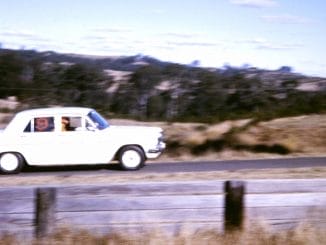At the premiere of the documentary film Machine, a movie that explores artificial intelligence in general and includes references to autonomous driving, Audi spoke about where they are at in terms of using this technology.
Other experts to be interviewed include:

- Tim Urban: Technology Writer, Wait But Why. His blog, Wait But Why covers every subject from procrastination to artificial intelligence and has garnered millions of unique page views, thousands of patrons and famous fans like Elon Musk.

- Kate Darling: AI & Robot Ethicist MIT. Dr. Kate Darling is a leading expert in Robot Ethics. Her research at MIT is anticipating difficult questions that lawmakers, engineers, and the wider public will need to address as human-robot relationships evolve in the coming decades.

- Toby Walsh: Scientia Professor of AI, UNSW, Data61 & TU Berlin. Toby Walsh is a leading researcher in Artificial Intelligence who has held research positions all over Europe. He has been a leading advocate calling for a ban on autonomous weapons at the UN and elsewhere

- Pindar Van Arman: Artist & Roboticist. Pindar Van Arman is an American artist and roboticist who designs painting robots that explore the differences between human and computational creativity. Since his first system in 2005 he has built multiple artificially creative robots, the most famous of which – CloudPainter – was awarded First Place in Robot Art 2018.
The film Produces, incorporated comments from Miklós Kiss, Audi’s Head of Predevelopment of Automated Driving, because their work is a good example of how technology will not just make the things we currently do, easier, but it could change our behavior and the very shape of our cities.
I spoke with Miklós who made a number of interesting comments.
- Car companies have moved into a more realistic view of autonomous systems. “It wasn’t really secret before, but there has been truly a hype and there was a hype in presentations and demonstrations. And what many of us have ignored is that much harder work to put that on the street, put it into worldwide operation than putting it on a test track”.
- As a premium brand, Audi has to tackle autonomous driving relative to their market. Autonomous systems for taxis in well-defined areas and public transport in well-defined corridors. But as a luxury brand, Audi has to try and develop cars that can be would around the world. So, the issue of varying road conditions, signposting and road rules is the major problem they have to address.
- Governments have to look at maintaining the road system so that autonomous vehicles can operate (good line marking for a start) but it is not that complex.
- Distraction is a problem when the driver is in control, but if there is a period of autonomous driving, but the driver has to stay awake in case the car no longer can control its self in the conditions, then having had some distraction for the driver (such as letting them watch a movie) is very helpful rather than letting them fall asleep.
- As we move from striving to inform the driver about road conditions and vehicle dynamics to a place where the people in the car can relax or work, means a whole different approach to the infotainment screens and what and how they can display things.
- Level 5 autonomy, where a car can chauffeur you anywhere at any time is “from my perspective, a bit of science fiction. One day we’ll get it. But I never would say yes. I think Level 3 and level 4 systems are quite near. And we see that in the next decade”.
- Miklós has a strong sense of job security. There will be a need for further development for many years to come.




